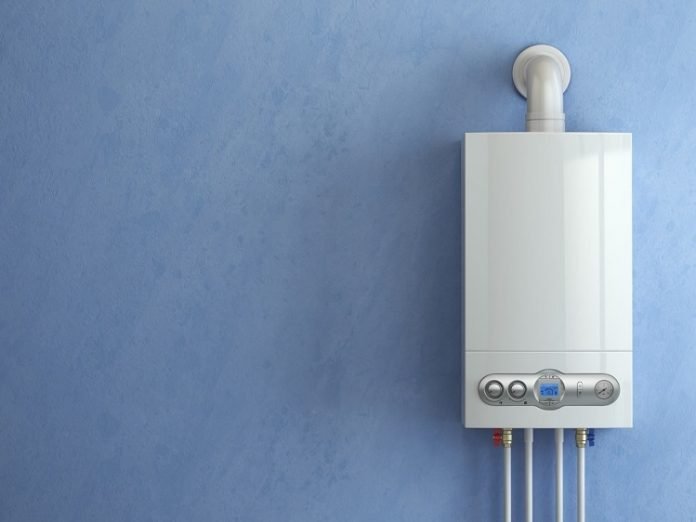Last Updated on March 22, 2024 by Nasir Hanif
There’s not having hot water because you’re three-quarters into your four-hour shower. And then there’s hearing weird noises every time you turn on the hot water faucet.
With upgrades and hidden homeownership expenses costing American homeowners thousands of dollars per year, the question “Is my water heater broken?” is one that nobody ever enjoys having to ask.
So are there any early signs short of a full-on explosion that can let homeowners know that their water heater is in bad shape? Should you be on the phone with a water heater repair team right now?
We’ve put together a list of four signs that your water heater is in trouble. Keep reading to find out if your water heater may need to be replaced soon.
Table of Contents
Your Water Temperature Fluctuates Mid-Shower
Okay. We know that this has happened to everyone at least once.
You step into the shower while in an absent-minded mood. Maybe you’re thinking about the latest impossible problem that your boss left on your desk before the weekend.
Or perhaps you got tired to the point of zoning out in the shower. But either way, the next thing you know, you’re getting hit with cold water and wondering how the last hour of your life could have skipped by.
That’s not what we’re talking about here. We’re talking about showering conditions where the temperature might start fine in the early going, but then the water goes from hot to cold and back again really quickly.
When this roller coaster ride of a shower is your norm, it can be tempting to think that maybe your thermostat is wonky or that maybe your faucet-timing wasn’t as flawless as you thought.
But if you’re double and triple-checking the general thermostat and you’re still having insane temperature fluctuations during your showers, there could be a water heater issue going on right under your nose.
There Just Isn’t Enough Hot Water
This one might sound like it’s the same issue as the changing temperatures problem. But it differs in one respect:
Instead of the water going from hot to cold and back again, the water simply goes from hot to cold in way less time than you would reasonably expect. So maybe instead of taking 30 minutes to switch to cold, you’re trying to bathe in under 10 minutes to avoid getting hit with cold water.
As for the cause, it’s important to picture your water heater as if it’s a bucket. If you were to throw a bunch of sand into the bottom, you’d have less room to add water. Keeping this visual image in mind, if your water heater has too much buildup or dirt in it, there may not be enough hot water available for you and your loved ones to use.
This might not necessarily be a definitive sign that you’ve got a broken water heater. But it is a strong indicator that you may want to consider the possibility.
The Tank is Leaking
Picture this:
You’ve been hearing the weird sounds. It’s been a few weeks of sudden cold water blasts. And now, after your latest hot-but-suddenly-cold shower, you’ve decided that enough is enough.
You make the trip downstairs. You scour your furnace room for answers. But even though nothing looks too amiss, you do notice a pool of water gathering around your water heater.
If the water seems to be coming from the pipes, you may be able to fix things if professional water heater services can intervene early enough. But if the water is leaking out of the tank itself, you may need to be prepared to make a replacement.
Your Hot Water Smells Bad
Water has a surprising amount in common with body odor. Sure, the bad smell will let you know that there’s a problem. But there could be any number of reasons why you can’t run the tap without picking up the distinct smell of rotten eggs or worse.
Although pinning down the causes of gross-smelling water can be tricky, it is possible to figure out whether you’ve got a problem with your water or with your hot water. It just takes a little bit of detective work.
To that end, if you can’t wash the dishes or run water for a bath without seeing discoloration or having your nostrils assaulted, it’s safe to assume that the issue is with your pipes or your overall water. But if it turns out that the cold water is as pristine as always while the dirt and smells start happening every time you turn the hot water faucet, you may need water heater repair.
What to Do When You’re Wondering, “Is My Water Heater Broken?”
Issues with the house and home are the last thing that anyone wants to deal with. After a hard day at work, you want to come home and have a nice dinner, a relaxing shower, and a calm evening before heading back to the daily grind.
So when your shower starts behaving differently, or your clothes are suddenly smelling off every time you do your laundry, it’s easy to start wondering, “Is my water heater broken?”. If you notice any of the signs that we’ve just covered here, you don’t want to try and DIY a solution. Your best bet at salvaging your situation is to get in touch with a professional repair service.
Are you looking to read more articles like this? Our site is brimming with red-hot content. Check out the rest of our site to find more posts like this.
Overview
- Lack of hot water: If your water heater is not producing enough or hot water, it could be a sign of a malfunctioning heating element or a faulty thermostat.
- Discolored or foul-smelling water: If your hot water appears brown, rusty, or has a foul odor, it could indicate corrosion or bacterial growth in your water heater.
- Strange noises: If you hear banging, popping, or rumbling sounds coming from your water heater, it could be a sign of sediment buildup or a malfunctioning heating element.
- Water leaks: If you notice water pooling around the base of your water heater or dripping from the pressure relief valve, it could be a sign of a leak or a damaged tank.
- High energy bills: If your energy bills have increased unexpectedly, it could be a sign that your water heater is working inefficiently and consuming more energy than necessary.
- Age of the water heater: If your water heater is more than 10 years old, it may be time to replace it, even if it appears to be working fine, as older units are more prone to breakdowns and inefficiencies.























